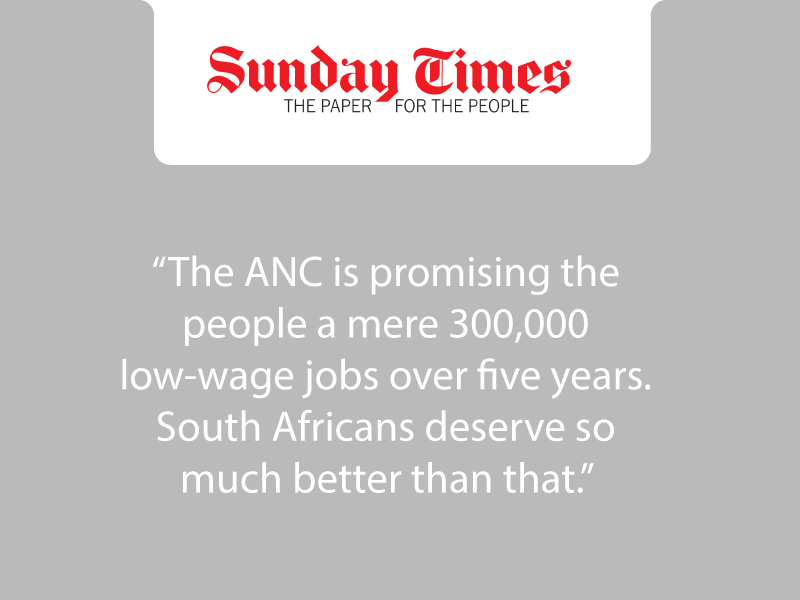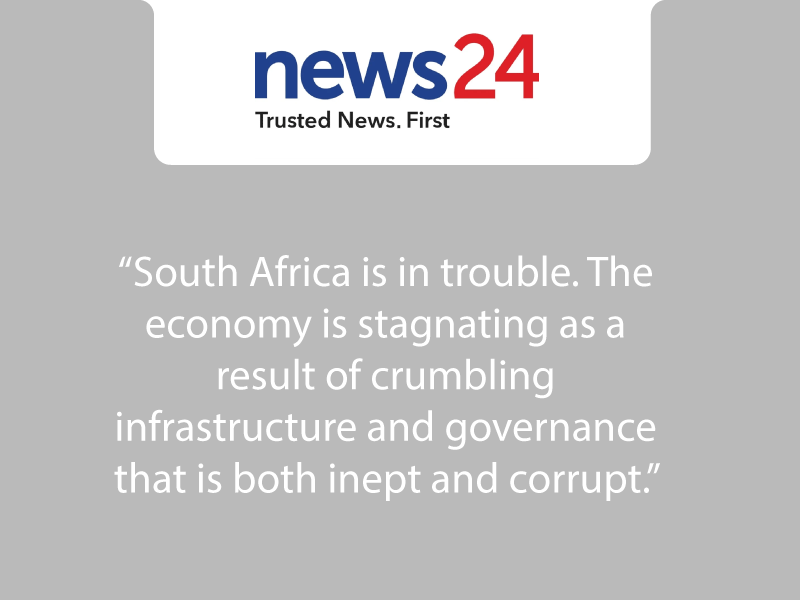
A presidential commission for our cities and towns should be established urgently to gather vital information still required to determine the causes of the current crisis in local government, and to make proposals to ensure future success. This is one of the major recommendations put forward by CDE in its response to the government’s white paper on local government.
CDE argues that the white paper is a great disappointment; a confused and inadequate document on which to base future government policy and action. The white paper fails to resolve the tension between a desire for strong local government as an engine for growth and development, and the reality of a sector in fundamental crisis.
The document hovers uneasily between a development wish-list and an acknowledgement that some gratification has to be deferred for sustained medium and long-term benefits. It fails to grasp the nettle of hard choices about priorities and political balance. It fails to deal properly with the crisis in local government, and therefore fails to extract lessons for future policies.
Lack of clarity
It reflects no international experience or other research (on which considerable public money was spent); its conclusions are not explained or justified; very few facts are reported; the implications of national economic policy for local government are not discussed; there is a lack of clarity on critical terms; and there is no concluding chapter pulling together a practical programme of action.
As a result, the white paper does not provide an adequate policy framework for local authorities to promote the development needed to sustain the provision of at least basic needs for all their inhabitants. Development and the provision of basic needs will require a clear understanding of economic circumstances and choices as well as an astute political balancing act which encourages all sectors of the community to make the maximum possible contribution.
Success in South Africa’s cities will require multi-class and multi-race coalitions for growth, development, and the redistribution of services and opportunities. Just as in South Africa as a whole, success will require far-sighted and long-term thinking on the part of all concerned.
Our weaknesses need to be honestly recognised, and our strengths built upon. Solutions have to be sought that provide something for all the components of the coalitions that must be formed if we are to achieve growth and sustainable development in urban South Africa.
Private investment and economic competitiveness for the cities is the only way in which the poor will ever be provided with access to services on a sustainable basis. In this context, the proposals for metropolitan government are particularly worrying. The two options proposed presuppose that, in the name of efficiency and an undefined notion of redistribution, it is necessary and justifiable to move away from effective powers for established local areas within the metropolis.
CDE is convinced that neither proposed option will provide the reassurances and environment that investors require before undertaking large risk ventures in the cities. In the light of the inadequacy of the white paper, CDE would argue that the government should proceed cautiously for now.
It should therefore only introduce legislation that is absolutely necessary for the 1999 elections, and to ensure fiscal discipline.
There is so much vital information which is still required as a basis for determining the causes of the current crisis in local government, and such uncertainty on broad approaches to ensuring the success of local development, that CDE is convinced that much crucial legislation must be deferred pending the results of a very special inquiry. This inquiry should not be rushed, and should take the form of a specially appointed commission for cities and towns which will be given up to 18 months to complete its work.
Terms of reference
Its terms of reference should include the following:
- Establishment of the fundamental information required for understanding the development needs and core objectives of urban government. This information must include urban demographics and socio-economic patterns, including the size and growth of populations, patterns of migration, the extent of poverty exactly defined, and the capacity of different categories of citizens to pay for services and property rates. Also, existing levels of service provision, adequacy of local infrastructure as a basis for economic growth, and capacity of the private sector and non-government and community sectors to contribute to development and service provision.
- Overview of settlement types in South Africa, with particular emphasis on patterns of marginal or displaced settlement (Winterveld, KwaNdebele, Bushbuckridge etc), its growth, circumstances, and interaction with core local authority areas with a view to identifying essential changes in demarcation without disrupting existing local authorities unnecessarily or threatening local identification between communities and their councils. Such a review should precede any major decisions by already established demarcation authorities.
- Powers of cities and towns, and relationships between tiers of government, with respect to the development objectives which they have to meet. The extent to which powers of higher tiers of government may have to be devolved or decentralised to local government, and under what conditions.
- A study of international best practice in the implementation of local economic development and the local investment challenge. This should include a review of delivery mechanisms in economic development and implications as regards the capacity and powers of local authorities. It should also cover different types of investment incentives and incentives for partnerships between local government, the private sector, and communities in achieving economic development.
- An analysis of the financial structure and adequacy of local fiscal resource bases by type and size of local authority. This must include an assessment of whether or not the standard sources of revenue (rates, licence fees etc) have to be augmented by new forms of local revenue.
- It should also include a review of costs and benefits of the rsc levy, and a detailed examination of how subsidies to assist the poor should avoid exploitation by slumlords or the further development of a culture of non-payment.
- Different options with respect to forms of urban government. This would include a detailed investigation of the possibility of executive mayors, but would also need to examine other issues as well – for example, the demands placed on local representatives and a review of international patterns in search of improving the status and competence of local councillors.
- A review of policy, regulations, and legislation (national, provincial, local) which hamper economic development and its facilitation by local authorities. Such a review would include rating systems, taxation, and levies, and extent to which they are efficient in achieving development objectives.
- An examination of international experience with respect to how best urban issues are dealt with at cabinet level. Should there be a single ministry of urban affairs?
Engine rooms
This review should include a careful examination of current South African approaches to these difficult questions at both the national and provincial levels of government, and the implications of the recommendations of the Presidential Review Commission for urban development.
South Africa’s cities are the engine rooms of the national economy, and the future of the country largely depends on their becoming globally competitive. Macroeconomic reforms will have enormous implications for the country’s urban areas, particularly its largest cities. These implications need to be thought about, debated, and creatively managed. Government and
private sector decision-makers need to start taking the urban environment and the when and where of production, services, and trade very seriously indeed.
A presidential expert commission will provide time out to consider the challenges facing South Africa’s cities and towns thoroughly, and provide government and all other decision-makers in the country with far-reaching, implementable, and well-considered proposals for action.
- Ann Bernstein is the executive director of the Centre for Development and Enterprise. This article is based on the CDE’s response to the white paper on local government (June 1998).
Photo credit: Hans Gustafsson




